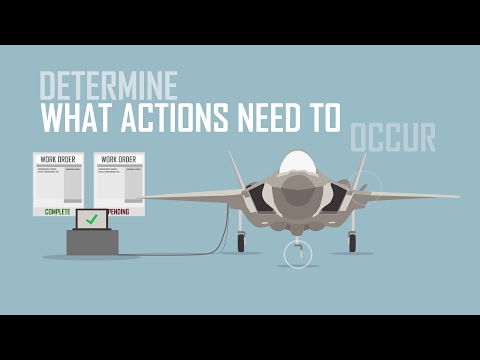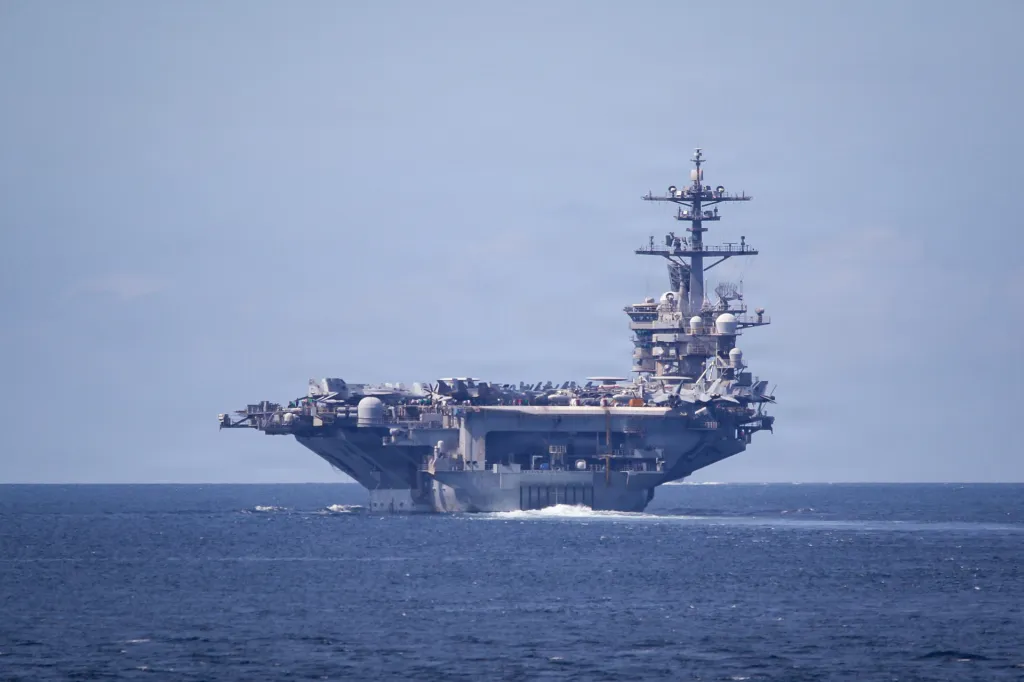F-35 Software Could Be Jailbreaked Like An iPhone: Dutch Defense Minister
The F-35’s ‘computer brain,’ including its cloud-based components, could be cracked to accept third-party software updates, just like ‘jailbreaking‘ a cellphone, according to the Dutch Defense Minister. The statement comes as foreign operators of the jets continue to be pressed on what could happen if the United States were ever to cut off support. President Donald Trump’s administration has pursued a number of policies that have resulted in new diplomatic strains with some long-time allies, especially in Europe.
“If, despite everything, you still want to upgrade, I’m going to say something I should never say, but I will anyway: you can jailbreak an F-35 just like an iPhone,” Gijs Tuinman said during an episode of BNR Nieuwsradio‘s “Boekestijn en de Wijk” podcast posted online yesterday, according to a machine translation.
Tuinman, who has been State Secretary for Defense in the Netherlands since 2024, does not appear to have offered any further details about what the jailbreaking process might entail. What, if any, cyber vulnerabilities this might indicate is also unclear. It is possible that he may have been speaking more notionally or figuratively about action that could be taken in the future, if necessary.
TWZ has reached out to the F-35 Joint Program Office and manufacturer Lockheed Martin for responses to Tuinman’s remarks.
As we have explored in detail in the past, the F-35 program imposes unique limits on the ability of operators to make changes to the jet’s software, as well as to associated systems on the ground. Virtually all F-35s in service today see software updates come through a cloud-based network, the original version of which is known as the Autonomic Logistics Information System (ALIS). Persistent issues with ALIS have led to the development of a follow-on Operational Data Integrated Network (ODIN), the transition to which is still ongoing.
The ALIS/ODIN network is designed to handle much more than just software updates and logistical data. It is also the port used to upload mission data packages containing highly sensitive planning information, including details about enemy air defenses and other intelligence, onto F-35s before missions and to download intelligence and other data after a sortie.
Though now dated, the video below still offers a useful explanation of ALIS’ functions.

ALIS: Keeping the F-35 Mission Ready
To date, Israel is the only country known to have successfully negotiated a deal giving it the right to install domestically-developed software onto its F-35Is, as well as otherwise operate its jets outside of the ALIS/ODIN network. The Israelis also have the ability to conduct entirely independent depot-level maintenance, something we will come back to later.
Issues with ALIS, as well as concerns about the transfer of nationally sensitive information within the network, have led certain operators, including the Netherlands, to firewall off aspects of their software reprogramming activities in the past. However, the work still occurs in the United States under the auspices of the U.S. military and Lockheed Martin.
As TWZ has written in the past:
“It’s this mission planning data package that is a major factor to the F-35’s survivability. The ‘blue line’ (the aircraft’s route into an enemy area) that is projected by the system is based on the fusion of a huge number of factors, from enemy air defense bubbles to the stealth and electronic warfare capabilities of the aircraft, as well as onboard sensor and weapons employment envelopes and integrated tactics between F-35s and other assets. To say the least, it is one of the F-35’s most potent weapons. Without it, the aircraft and its pilot are far less capable of maximizing their potential and, as a result, are more vulnerable to detection and being shot down.“

So, while jailbreaking F-35’s onboard computers, as well as other aspects of the ALIS/ODIN network, may technically be feasible, there are immediate questions about the ability to independently recreate the critical mission planning and other support it provides. This is also just one aspect of what is necessary to keep the jets flying, let alone operationally relevant.
TWZ previously explored many of these same issues in detail last year, amid a flurry of reports about the possibility that F-35s have some type of discreet ‘kill switch’ built in that U.S. authorities could use to remotely disable the jets. Rumors of this capability are not new and remain completely unsubstantiated.
At that time, we stressed that a ‘kill switch’ would not even be necessary to hobble F-35s in foreign service. At present, the jets are heavily dependent on U.S.-centric maintenance and logistics chains that are subject to American export controls and agreements with manufacturer Lockheed Martin. Just reliably sourcing spare parts has been a huge challenge for the U.S. military itself, as you can learn more about in this past in-depthTWZ feature. F-35s would be quickly grounded without this sustainment support.

Altogether, any kind of jailbreaking of the F-35’s systems would come with a serious risk of legal action by Lockheed Martin and additional friction with the U.S. government. What would have to happen for a country like the Netherlands to pursue that course of action would also likely be just one symptom of a much more serious breakdown in relations with Washington. Doing this could easily prompt a cutoff in spare parts and other support, if that had not already occurred, which would leave jailbroken jets quickly bricked on the ground. To be clear, cracking the software would do nothing to mitigate the downstream impacts of being shut out from critical sustainment pipelines.
Spats between President Donald Trump’s administration and certain U.S. allies have already created a degree of additional turbulence for the F-35 program, as evidenced by the ‘kill switch’ reporting last year. Most recently, trade disputes and other recent rifts in relations between Ottawa and Washington have led Canadian authorities to launch a review of their F-35 acquisition plans. There are broader questions now about the future of U.S. defense exports, especially in Europe, in light of other diplomatic rifts with Washington.
At the same time, despite his comments about the possibility of needing to crack the jet’s computer systems, Dutch Defense Minister Tuinman remained broadly supportive of the F-35 during the BNR Nieuwsradio podcast.
“Even if this mutual dependency doesn’t result in software updates, the F-35, in its current state, is still a better aircraft than other types of fighter jets,” Tuinman stressed, according to a machine translation of an accompanying story about the podcast from BNR.
Altgoether, questions very much remain about just what ‘jailbreaking an F-35’ might look like in practical terms, and how that might impact the operational utility of the jets in the absence of support from the U.S. government and Lockheed Martin. At the same time, Tuinman’s comments do underscore larger issues surrounding the F-35 program, especially for foreign operators, many of which are not new.
Contact the author: joe@twz.com



